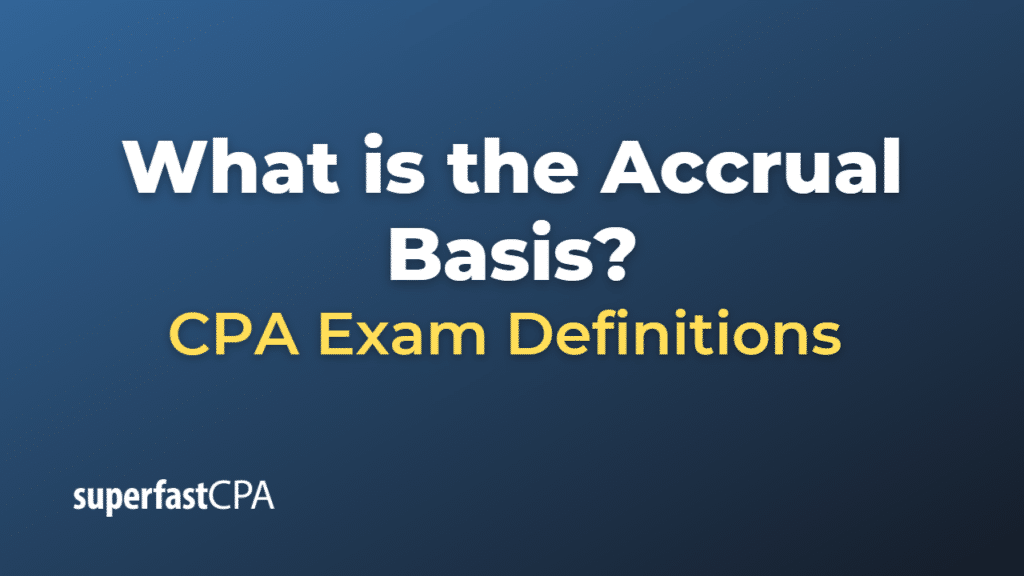Accrual Basis
Accrual basis, also known as accrual accounting, is an accounting method that records financial transactions when they are earned or incurred, rather than when cash is received or paid. The accrual basis of accounting follows the matching principle, which requires that revenues be recognized when they are earned and expenses be recognized when they are incurred, regardless of the timing of cash flows.
Under the accrual basis, the following principles apply:
- Revenue recognition: Revenues are recorded when they are earned, regardless of when the cash is received. For example, if a company provides services to a client in December but does not receive payment until January, the revenue would be recognized in December under the accrual basis.
- Expense recognition: Expenses are recorded when they are incurred, regardless of when the cash is paid. For example, if a company incurs utility expenses in December but does not pay the bill until January, the expense would be recognized in December under the accrual basis.
The accrual basis of accounting provides a more accurate and comprehensive view of a company’s financial performance and position than the cash basis of accounting, which records transactions only when cash is received or paid. Accrual accounting is the standard accounting method for most businesses and is required under Generally Accepted Accounting Principles (GAAP) in the United States and the International Financial Reporting Standards (IFRS) globally.
Example of an Accrual Basis
Let’s consider a hypothetical example to illustrate the accrual basis of accounting.
Imagine a company named “Tech Solutions” provides IT support services to its clients. On December 20, Tech Solutions signs an agreement to provide IT support services to a client for $3,000 per month. The client will be billed at the end of each month and will pay the invoice within 15 days of receipt. Tech Solutions starts providing services on December 21 and continues through January.
Under the accrual basis of accounting, Tech Solutions would recognize the revenue and expenses related to the IT support services in the appropriate months, regardless of when the payments are made.
Here’s how Tech Solutions would record the transactions using the accrual basis:
- Revenue recognition: Tech Solutions provides IT support services from December 21 to 31. The company should recognize a portion of the $3,000 monthly fee as revenue for December. Assuming 31 days in the month, the revenue for 11 days of service in December would be ($3,000 / 31) * 11 = $1,064.52. The journal entry would be:Debit: Accounts Receivable (Asset) – $1,064.52 Credit: IT Support Services Revenue – $1,064.52
- Expense recognition: Suppose Tech Solutions incurs $600 in expenses related to the IT support services provided in December, such as employee wages and software licenses. Even though these expenses may not have been paid in cash yet, Tech Solutions would record them in December when they are incurred. The journal entry would be:Debit: IT Support Services Expenses – $600 Credit: Accounts Payable (Liability) – $600
By using the accrual basis of accounting, Tech Solutions’ financial statements for December accurately reflect the economic activity related to the IT support services. The revenue of $1,064.52 is recognized when it is earned, and the expenses of $600 are recognized when they are incurred, providing a more accurate picture of the company’s financial performance and position during the period.













